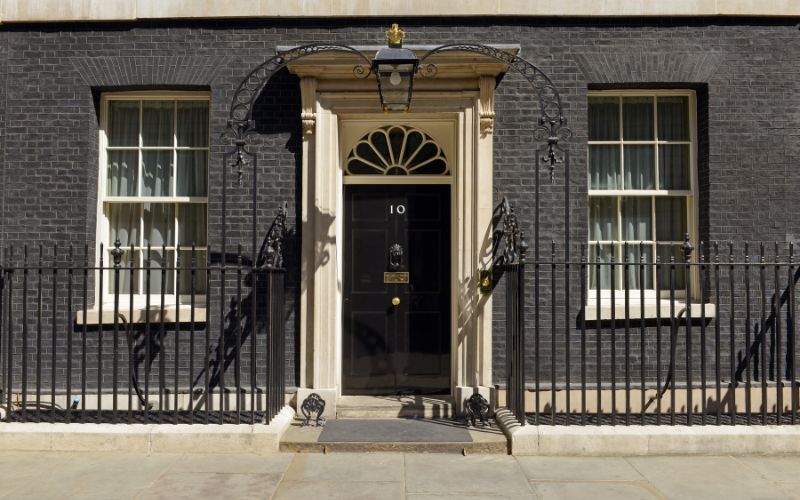However, new bills were introduced, mortgage rates were lowered, and more schemes and financial support became available to prospective property owners – giving the industry a much needed boost after continuous fall in comparative rates.
So, was 2023 a good year for the property industry? We asked our MD Alex Hurn what he thought…
What was one of the most notable influences on the property industry in 2023?
There’s no denying that the property industry is undergoing a profound transformation thanks to digitalisation, technology, and artificial intelligence.
Technological applications have begun to play a crucial role in supporting the entire life cycle of property development, both at the individual property and portfolio levels.
For those in the industry, it’s becoming more of a requirement to adopt an integrated tech strategy that is user-friendly, easily embraced by staff, and adaptable to the ever-changing digital landscape.
In 2023, I saw considerable interest from developers, operators, and asset owners in embracing these digital systems, the result of which will be seen in their end products, but I believe this was one of the positive changes to come out of last year.
Was there anything specific that was brought to light that impacted the industry (positively/negatively)?
Well, one of the biggest cases to come out of last year was the RAAC scandal. Reinforced Autoclaved Aerated Concrete (RAAC) was found in a number of schools and other public sector buildings, which was found to have been putting people’s lives at risk for years.
Funding and urgent action taken by authorities helped mitigate the risks posed by the dodgy concrete, but this was just a short-term solution. In my opinion, the scandal has brought to light underlying issues that could be present in older properties, particularly those constructed between the 1960s and the 1980s.
More needs to be done to ensure all buildings are safe and rid of any outdated, dangerous concrete and building materials if we are to maintain any credibility in the global built environment sector.

What did you think about the DLUHC plans for brownfield sites?
Quarter four saw the Department for Levelling Up, Housing and Communities unveil their second and third instalments of the £180 million Brownfield Release Fund, which aims to facilitate the construction of new homes on brownfield sites.
Funds are disbursed directly to councils to help speed up the process of making land available for development, which I think is a real positive for both housing and the environment.
Despite the modest size of the funding, it may be an indication of the Government's future commitment to further support brownfield development, acknowledging the legal complexities associated with such initiatives, which often present significant challenges in terms of risk mitigation and successful execution.
Thoughts on the updated provisions to Biodiversity Net Gain (BNG)?
It was reported that the Environment Act 2021, which included newly added provisions relating to BNG, would come into effect in November 2023 but due to delays, the Government will most likely introduce them during the first quarter of 2024 instead.
Whether this had been introduced at the end of 2023 or not, it doesn’t give developers much time to familiarise themselves with the BNG rules outlined in the Environment Act 2021 and the forthcoming secondary legislation.
Therefore, strategically planning on how to incorporate BNG into projects whilst considering the potential expenses associated with obtaining biodiversity units in land acquisitions will be vital for 2024.

How did the Levelling Up and Regeneration Act 2023 make you feel about the market landscape?
This is something that has been floating around the political circle for years, and it was finally passed on the last day of the last Parliamentary term in 2023. However, we will now have to wait to see these provisions come into effect.
When these provisions do come into effect though, they have the ability to positively reshape the planning system as well as influence the way the market currently operates.
Yet despite this, the planning process entails various considerations that developers must address to ensure the smooth implementation of LURA 2023 without hindering future or existing projects.
Notably, two key planning modifications include the removal of the four-year enforcement rule, extending the enforcement window to 10 years universally, and the substitution of the community infrastructure levy (CIL) with the Infrastructure Levy in most areas.
In your opinion, how did the changes to MEES affect the industry in 2023?
Last year saw the Minimum Energy Efficiency Standards scrapped for residential properties, whilst MEES were introduced for the first time to commercial properties in April 2023.
Has scrapping residential MEES had a positive impact on the sector? Financially, perhaps, but overall, this really hinders the path towards Net Zero and discourages energy efficient upgrades across the industry, which is already one of the worst polluters nationally.
So, as the next general election approaches, there could well be suggestions on enhancing energy efficiency in residential developments without imposing an immediate and expensive burden on the private rental sector.
It will be intriguing to observe whether the upcoming government favours a subsidised strategy or one where landlords continue to bear the cost burden but with extended timelines.

What did you think about the Leasehold and Freehold Reform Bill?
The published Bill falls short of incorporating all the reforms specified by the King, although, the Government has assured that amendments will be introduced as the Bill advances through Parliament.
Speculation had circulated about the Government considering a more extensive overhaul of tenure, possibly eliminating leasehold entirely in favour of commonhold or introducing an entirely different system.
However, it seems like plans have been dialled down, with the Government now concentrating on efforts to enhance fairness for homeowners within the current tenure framework.
Despite widespread approval of most proposed reforms, certain provisions of this Bill raise genuine concerns amongst industry professionals.
How do you think the general election will impact the industry this year?
Just like last year, the forefront of policy debates will likely revolve around living conditions, encompassing areas such as tax, planning, and regeneration.
This could present a good opportunity to change housing policies for the better, creating an environment that empowers the property sector to deliver new, high-quality housing that aligns with the varied needs of both tenants and landlords across the country.
However, striking a balance could be difficult for all political parties as they try to navigate between crafting consumer-friendly, poll-shifting housing policies and addressing the requirements of developers, operators, and funders, who play a pivotal role in resolving the ongoing housing crisis.

So, was 2023 a good year for the property industry?
A lot of progress was made in the property industry in 2023, notably with the introduction of more advanced technology, funding for brownfield sites, and an increased focus on building safety.
However, with good also comes the not-so-good. I believe we are yet to see the outcomes of many pledges, changes, and newly introduced reform bills over the coming months and with a general election on the horizon, we could see even more changes coming our way.
More still needs to be done to help developers, property owners, and tenants as political and financial instability continues into the new year.
A bigger focus on the requirements of social housing tenants and the safety of public sector buildings is a must, whilst clear guidelines will be needed when it comes to construction work and the use of land going forward.
Who are we?
Sillence Hurn’s Chartered Building Surveyors are RICS qualified with extensive experience of building surveying across London and the South of England.
From advice around feasibility, cost planning, undertaking the work in the current market, specifying works, overseeing and managing the implementation of changes, our chartered building surveyors will be able to identify any upgrades and advise you on the best measures going forward.
Read more about our solutions here:
Technical due diligence
Project management
Dilapidations consulting
Cost management
Monitoring Surveying
Party Wall
Contract Administration
Planned Preventative Maintenance
Email us at enquiries@sillencehurn.co.uk or call our Southampton team on 02380 014786 / London at 020 3143 2128





